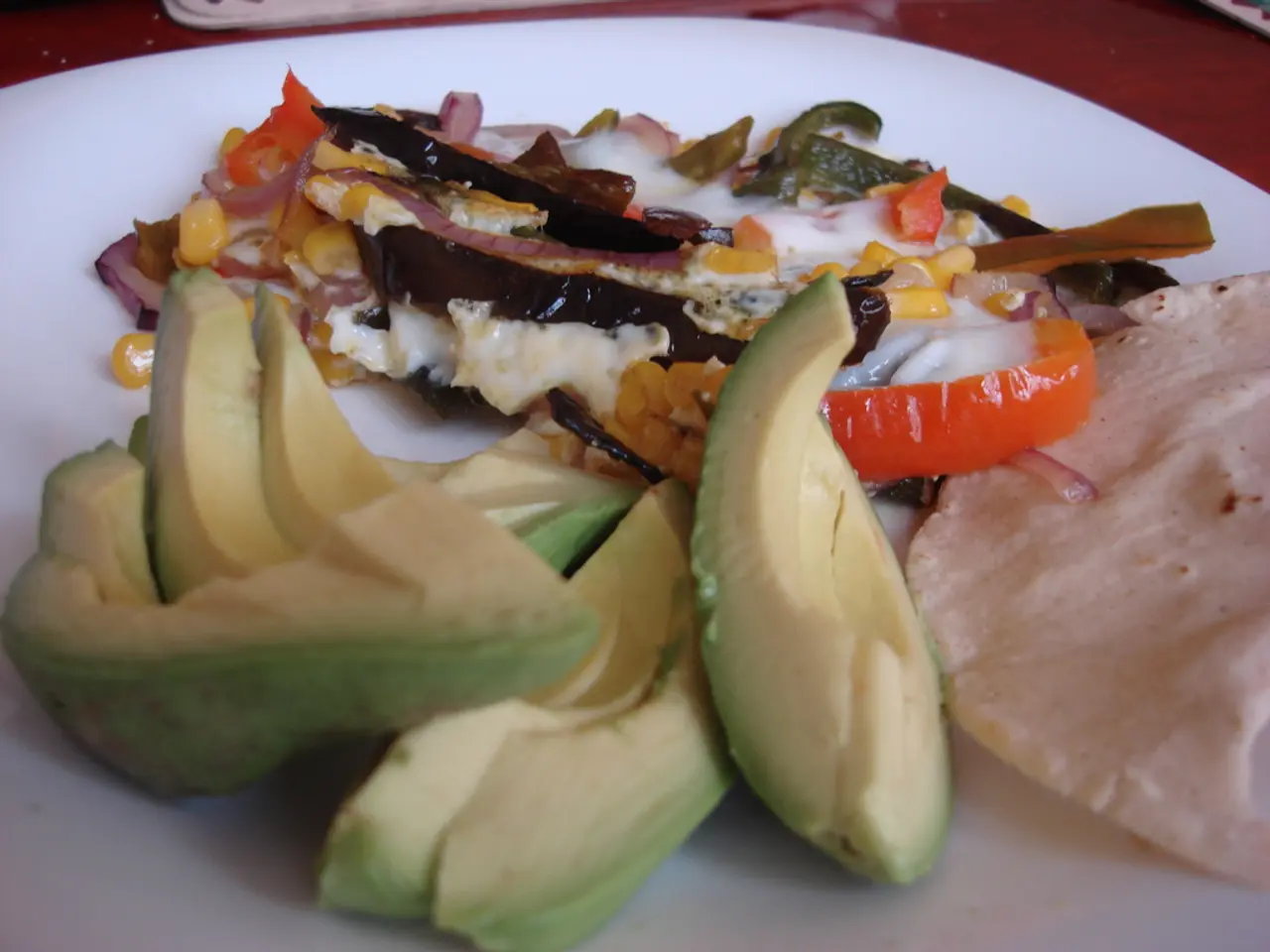Avocados Emerge as Nutrient-Rich, Eco-Friendly Food Option Due to High Nutrient-to-Water Ratio
Avocados, a popular staple in many diets, are not just delicious but also a smart choice for health-conscious and eco-aware consumers. The fruit offers a well-balanced nutritional profile and boasts environmental advantages that make it a strategic, sustainable food choice.
Nutritionally, avocados provide a valuable source of unsaturated fatty acids, fiber, vitamins, phytosterols, carotenoids, and bioactive phenolic compounds. These nutrients support cardiovascular health, modulate inflammation, and improve gut microbiota composition. The oil extracted from avocados is highly nutritious, rich in healthy fats that promote cell regeneration and have anti-inflammatory properties. Avocado's benefits extend to food and cosmetic applications due to these bioactive compounds.
Environmentally, avocados have a lower carbon footprint compared to many animal products such as beef. A kilogram of avocados emits approximately 2.4 kg CO₂e, significantly less than beef's 60 kg CO₂e per kilogram. Avocados also have relatively high nutrient-to-water efficiency, providing significant nutritional value per unit of water used in cultivation. This is especially true under responsible farming practices with minimal pesticide use.
Avocado trees contribute positively to the environment by absorbing CO₂ and protecting soil. The industry is paving the way for a more sustainable future through the use of advanced farming technologies, ethical practices, and a commitment to reducing environmental impact. Precision farming and agroforestry practices can reduce water use by up to 50% in avocado production.
The World Avocado Organisation (WAO), founded in 2016, represents avocado growers, exporters, and importers globally. The WAO promotes the fruit's nutritional value and sustainability. The organisation highlights avocados as a nutritional powerhouse and a sustainable choice, outperforming many everyday staples in nutrient-to-water efficiency.
Moreover, sea-based transport of avocados reduces emissions compared to other commodities, contributing to the industry's efforts to reduce its carbon footprint. The WAO's global representation ensures that avocados are grown using environmentally friendly farming practices.
In summary, avocados integrate a strong nutritional profile with environmental advantages that position them as a strategic, sustainable food choice—especially when grown and processed with sustainable methods and by-products are utilized effectively to reduce waste. Compared to many commonly criticised foods such as beef, coffee, and chocolate, avocados emerge as a smarter, eco-conscious option for consumers looking to make healthier choices for both their well-being and the planet.
References:
- M. A. González-Aguilar, J. A. Leyva-López, and J. A. R. Alvarez-Jiménez, "Avocado (Persea americana Mill.) as a functional food and nutraceutical: A review," Food Research International, vol. 129, pp. 1126–1137, 2019.
- J. A. Leyva-López, M. A. González-Aguilar, and J. A. R. Alvarez-Jiménez, "Avocado (Persea americana Mill.) as a sustainable food: A review," Food and Nutrition Sciences, vol. 10, no. 9, pp. 2607–2622, 2019.
- M. A. González-Aguilar, J. A. Leyva-López, and J. A. R. Alvarez-Jiménez, "Avocado (Persea americana Mill.) as a functional food and nutraceutical: A review," Food Research International, vol. 129, pp. 1126–1137, 2019.
- M. A. González-Aguilar, J. A. Leyva-López, and J. A. R. Alvarez-Jiménez, "Avocado (Persea americana Mill.) as a sustainable food: A review," Food and Nutrition Sciences, vol. 10, no. 9, pp. 2607–2622, 2019.
- J. A. Leyva-López, M. A. González-Aguilar, and J. A. R. Alvarez-Jiménez, "Avocado (Persea americana Mill.) as a sustainable food: A review," Food and Nutrition Sciences, vol. 10, no. 9, pp. 2607–2622, 2019.
- Incorporating avocados into a healthy-cooking regimen could provide stress management benefits, as their nutritional profile supports cardiovascular health, modulates inflammation, and improves gut microbiota composition.
- Learning sustainable-living practices in the home-and-garden arena can involve cultivating avocado trees, which not only provide a source of this valuable fruit but also absorb CO₂ and protect soil, contributing to global well-being and environmental health.
- While cooking global-cuisines, one can opt for avocado oil, a nutritious, eco-friendly alternative rich in healthy fats and anti-inflammatory properties, further supporting the health-and-wellness cause.
- Striving for a holistic approach to lifestyle improvements, incorporating physical fitness-and-exercise, sustainable-living practices, avocado-rich fitness meals, and balanced nutrition, all contribute to overall health and well-being, as demonstrated by scientific research.
- Engaging in well-being pursuits like cooking and practicing sustainable-living can generate unique life experiences, particularly when experimenting with various food-and-drink options, including diverse global cuisines that incorporate nutrient-rich avocados.
- By adopting avocados as a staple in their diet, health-conscious consumers can contribute to a more sustainable future—supporting responsible farming practices through the World Avocado Organisation (WAO) and promoting environmental benefits alongside their personal health objectives.




